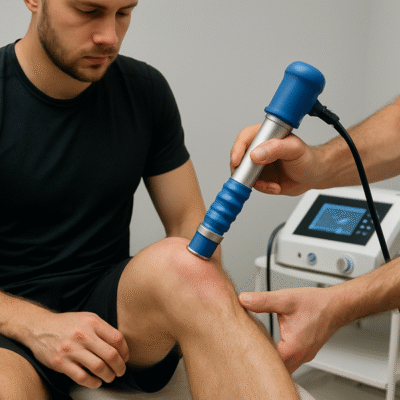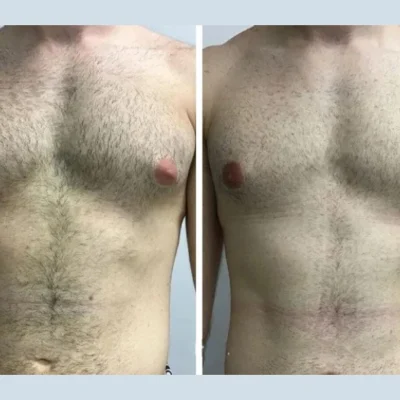Heart disease is a growing concern in India, with lifestyle changes, stress, and sedentary habits contributing to rising cases. Detecting heart blockages early can save lives, and one of the most trusted diagnostic tests for this is coronary angiography. For patients seeking an experienced Cardiologist in Jaipur, this test provides clarity about the condition of their coronary arteries and helps in planning the right treatment.
What is Coronary Angiography?
Coronary angiography is a medical imaging test that allows doctors to see the inside of the coronary arteries—the blood vessels that supply the heart muscle. Narrowing or blockages in these arteries can lead to chest pain, shortness of breath, heart attacks, or heart failure.
During the procedure, a Heart Specialist in Jaipur inserts a thin catheter through an artery in the wrist or groin and guides it toward the heart. A contrast dye is injected, making the coronary arteries visible on X-ray images. This helps the doctor see exactly where blockages are and how severe they might be.
Who Should Undergo Coronary Angiography?
Your Heart Doctor in Jaipur may recommend coronary angiography if you:
-
Experience persistent chest pain or angina
-
Have shortness of breath with mild activity
-
Show abnormal results in ECG, echocardiogram, or stress test
-
Have had a heart attack or are at high risk of one
-
Are scheduled for angioplasty or bypass surgery and need detailed artery mapping
This test provides detailed information that non-invasive tests often cannot, making it the gold standard for diagnosing coronary artery disease.
Step-by-Step Process of Coronary Angiography
-
Preparation – Basic blood tests and ECG are performed before the procedure.
-
Anesthesia – Local anesthesia is given at the catheter insertion site.
-
Catheter insertion – A thin tube is inserted through the wrist (radial approach) or groin (femoral approach).
-
Dye injection – Contrast dye is released into the coronary arteries.
-
X-ray imaging – Live X-ray images are captured, showing the blood flow and blockages.
-
Post-procedure care – The catheter is removed, and the site is bandaged. Patients are monitored for a few hours before discharge.
An experienced Cardiologist in Jaipur ensures the test is safe and comfortable, usually completing it within 30–60 minutes.
Benefits of Coronary Angiography
-
Accurate detection of blockages or narrowing in coronary arteries
-
Helps doctors decide if angioplasty or bypass surgery is required
-
Provides a roadmap for stent placement and other interventions
-
Minimally invasive, with a quick recovery time
-
Allows patients to understand their heart health in detail
For patients consulting a trusted Heart Specialist in Jaipur, this test often becomes the turning point for timely treatment.
Risks and Safety Considerations
Coronary angiography is generally safe, but like all medical procedures, it carries small risks. Possible complications include:
-
Minor bleeding or bruising at the insertion site
-
Allergic reaction to the dye
-
Rare chances of irregular heartbeat or heart attack
-
Kidney effects in patients with pre-existing kidney disease
Fortunately, with modern technology and the expertise of an experienced Heart Doctor in Jaipur, these risks are very low.
Life After Coronary Angiography
Most patients are discharged the same day or the next morning. Recovery is quick, and patients are advised to:
-
Avoid heavy lifting for a few days
-
Drink plenty of water to flush the contrast dye
-
Monitor the insertion site for redness or swelling
-
Follow up with their Cardiologist in Jaipur for test results and next steps
If blockages are found, treatment options may include lifestyle changes, medicines, angioplasty with stent placement, or bypass surgery.
Preventive Measures for Heart Health
While coronary angiography diagnoses existing blockages, prevention is always the best strategy. You can reduce the risk of heart disease by:
-
Eating a heart-healthy diet rich in vegetables, fruits, and whole grains
-
Controlling blood sugar, cholesterol, and blood pressure
-
Quitting smoking and limiting alcohol
-
Exercising regularly with medical guidance
-
Managing stress through yoga, meditation, or breathing exercises
-
Visiting a Heart Specialist in Jaipur for regular cardiac check-ups
Why Choose Dr. Rahul Sharma for Coronary Angiography in Jaipur?
When it comes to heart health, expertise makes all the difference. Dr. Rahul Sharma, a renowned Cardiologist in Jaipur with more than 20 years of experience, specializes in diagnosing and treating complex cardiovascular diseases.
He is associated with Fortis ***** Hospital, Jaipur, and also practices at his Medinova Superspeciality Clinic, offering world-class facilities for coronary angiography, angioplasty, pacemaker implantation, echocardiography, and advanced cardiac care.
Patients seeking a trusted Heart Doctor in Jaipur rely on Dr. Sharma for accurate diagnoses, safe procedures, and compassionate treatment plans tailored to their needs.
Final Thoughts
Coronary angiography is a highly effective diagnostic tool that helps doctors identify blockages and plan appropriate treatment for heart patients. If you are experiencing symptoms such as chest pain, breathlessness, or unexplained fatigue, don’t ignore them. Consulting an experienced Heart Specialist in Jaipur ensures timely diagnosis and treatment that can save your life.
With his vast expertise and dedication, Dr. Rahul Sharma provides advanced and patient-focused care, making him one of the leading choices for coronary angiography in Jaipur.



